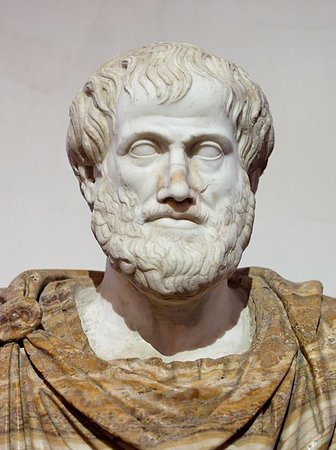In classical logic, the law of non-contradiction is the second of three classic laws of thought.  It states that contradictory statements cannot both be true in the same sense at the same time.¹ The law of non-contradiction, along with its complement, the law of excluded middle, are correlates of the law of identity. Aristotle (as pictured) was one of the main writers of classical logic, among other topics.¹
It states that contradictory statements cannot both be true in the same sense at the same time.¹ The law of non-contradiction, along with its complement, the law of excluded middle, are correlates of the law of identity. Aristotle (as pictured) was one of the main writers of classical logic, among other topics.¹
One difficulty in applying the law of non-contradiction is ambiguity in the propositions. For example, if time is not specified for two statements, then both propositions may happen but at different times. However, it is impossible to predicate of the same thing, at the same time, and in the same sense, the absence and the presence of the same fixed quality.¹
Some philosophies accept and some deny the law of non-contradiction. Eastern philosophy confirms the principle of non-contradiction in some of the earliest writings. Heraclitus of ancient Greece denied the law of non-contradiction.¹ He argued that objects must both have what it now is and what it has the potential.
Image source:
1. Wikimedia
Reference:
1. Alfred North Whitehead, Bertrand Russel (1910). Principia Mathematica. Cambridge, p. 116-117.
© BrainMass Inc. brainmass.com April 28, 2024, 9:42 pm ad1c9bdddf